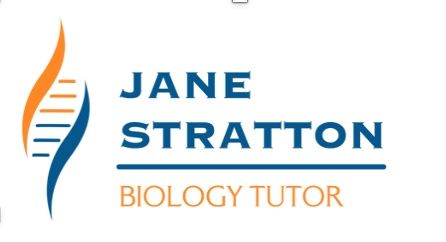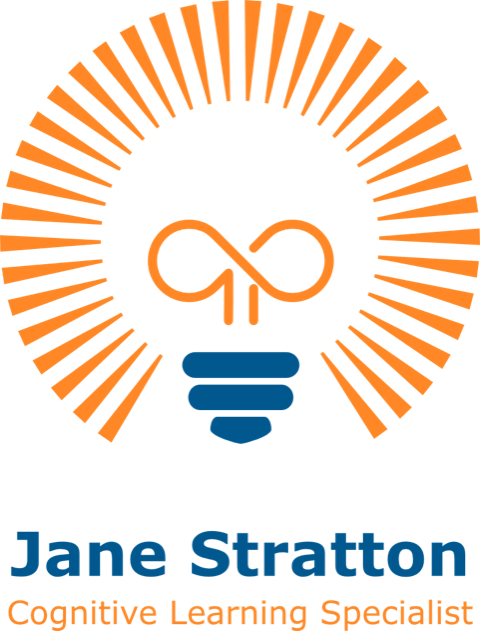Case Studies
case studies

By Jane Stratton
•
28 Jul, 2020
Jack’s dad contacted me in September 2016; his son had just started fourth year and was struggling with Biology. He had enjoyed the subject at the start of secondary school but had fallen out of love with it during the previous year, resulting in a fail in his third-year exam. I was happy to take him on as a pupil and looked forward to meeting him for our first session. “I hate biology and want to drop it as soon as I can. Please can you help me get a C?” Jack was blunt! He said he was terrible at the subject and wanted a pass in his National 5 so that his parents would let him drop it. As I always do, I asked him what his goal was, to which he replied, “a low C”. In my experience, most pupils say an A or a B, so this was quite surprising. He was clearly capable of doing well but had given up and was not wanting persuaded to change his mind at this point. Jack had a love of hockey, skiing and the out of doors; we had a lot in common! I managed to incorporate his interests into every session and slowly I saw his enthusiasm for Biology increase, as did his engagement. It was as if he had suddenly been given a reason to be interested; there was now a ‘point’ to the subject. He had started with a quiet, some would say sullen demeaner, but he was beginning to open up, ask questions and enjoy the sessions. When we began doing past paperwork, his marks quickly improved until he asked me if he could change his goal of a C to an A! I was so delighted to see his determination grow and his dad told me that his teacher was noticing it too! In fact, he had asked to be moved away from his friends in class so that he could concentrate better. He was answering in class and helping other pupils relate the facts they were learning to their own lives. Strategies don’t always work, but this one did, and we continued to talk about the subject in terms of sport or nature; soon he was telling me the connections. We joked about him taking over my job and working with all my pupils! He managed to quickly alter questions in his mind to make them more relatable and then answered them using a similar method. He wrote his notes with sport or wildlife drawings in the margins to make associations and he said that it was as if the subject had, “come alive.” In all honesty, I do this whenever possible with all my pupils, but Jack really appreciated being given the link in a way that sparked his imagination, and it was as if a switch had been flicked. Not only did Jack get an A for his National 5 Biology, he decided to move on to the Higher Human Biology course and I was once again asked if I could support him. I was delighted of course and by this time, we had built up a very good working relationship in which sessions were upbeat, animated and a world away from how it had started the previous year. This time, Jack told me that his goal was to achieve an A in Higher, and he was considering a career as a Physiotherapist! Gone was the defeatist Jack and here to stay was the driven, achieving Jack was! In fact, the same was being seen in all his subjects. Jack worked very hard for his Higher and once again in Biology, he achieved an A. Having said goodbye to this transformed youngster, I was delighted to hear from Jack again in September 2018 to say that he was now doing Advanced Higher as he hadn’t been enjoying school any more without Biology! I was asked to tutor him again, and he worked incredibly hard at the theory while absolutely loving the practical side of the course. I taught him the scientific skills required for his project and he spent months on a very interesting piece of work relating to his aspiration of becoming a physiotherapist. Jack gained a high B in his Advanced Higher, outstanding considering he entered the course late. I never forget any of my pupils, and Jack will always stick in my mind as a reminder not ever to give up on a pupil who says they “hate” a subject. I am so encouraged by his change in focus and enjoyment (or lack of at the start) of Biology. Teenagers find subjects very difficult when they can’t find a link to their own experiences of life. If we can find that link and encourage them to see it, it can truly make all the difference. Jack is excelling in a Physiotherapist course and dreams of working with teenagers in sport! I have no doubt that he will achieve his goal. Please read Lewis’s story here.

By Jane Stratton
•
16 Jul, 2020
Anna’s mum, Lucy, called me in December 2017, having been passed my name by a friend. Lucy was teary and distressed as she described a drastic change in her daughter from a bright, confident and enthusiastic girl to one who could no longer cope at school, had bouts of extreme anxiety that manifested itself as anger and defiance, and who seemed so desperately sad. Anna had stopped attending school after her National 5 exams earlier that year. Every day, she tried to go but every day, she just couldn’t, and the days of absence turned into weeks which turned into months, and more recently, the whole winter term. The school’s senior management team was now threatening Anna with permanent exclusion, but her mum was desperate to enable her daughter to achieve her goal: to gain 5 Highers and go to university. Lucy had one request, “ Please can you help?” My answer, a resounding “Yes”. Described by most as a ‘school refuser’ (a term that I dislike immensely), and now a shell of the girl she had been before, Anna came for her first session on 10th December 2017. We had five months to turn this around and I was up for the challenge! Thankfully, from the end of session 1, so was she; she was polite though shy, determined though nervous, but ultimately she wanted to try and that was more than good enough for me. She told me how ashamed she felt about giving up on her schooling, so I made the decision to show her that she had done nothing of the sort. I was going to help her see that all was not lost, and with a bit of support, Anna would learn that she was more than capable of success. I decided that if Anna wanted to talk about her school absence, I would provide a listening ear, but that I would not ask her questions or dwell on the subject. She had chosen to ask her mum for a tutor in biology, had decided she would start back at school, and had vowed to work hard. If Anna was determined then so was I! “I know that most of my teachers think I've missed too much to stand a chance of passing any exams. Maybe I have, but I want to at least try.” Anna’s knowledge of the Higher Biology course was non-existent, but she had done very well in National 5 and was extremely bright. She became more determined as the weeks went on and I admired her enthusiasm and drive to prove to everyone that she could do it. After four sessions, Anna told me that she must pass her prelim to be presented for the final exam in May. She was already only being permitted to do three subjects as it was; she desperately wanted the chance to achieve the grades she was capable of. I wrote a plan of action so that we could see how much we needed to cover each week and I asked Anna if she’d be able to do past papers at home between sessions. She said she would do everything asked of her and despite all the hard work, she never once gave up. Anna is one of the most dedicated and appreciative pupils I have ever worked with; she relaxed into the routine of learning and past paper work and she never stopped thanking me for believing she could do it. As time went on, her demeaner changed, her posture became more upright and her voice stronger! In past paper work, Anna began by scoring around 40%; actually, very impressive considering she hadn’t attended any Higher Biology lessons. By the time she sat her Prelim in February, there were still some gaps in her knowledge, but she was passing the papers she was doing. Lucy, Anna and I were all nervous about the prelim, but she passed! She was told she could sit the exam in May if she kept attending school. This was tough for Anna and she suffered terrible anxiety at times, but she found a teacher to talk to whom she trusted, and contacted me once or twice a week to check in. Lucy and I spoke every week and life was improving all round. Lucy told me that she was, “seeing the old Anna again.” Anna sat her Higher Biology exam at 9am on Tuesday, 15th May 2018, and called me as soon as she got home afterwards. All the signs were good, she was quietly confident, felt she had remembered everything and had answered all the questions……it was going to be a long wait till the results were due at the beginning of August, but she had done all that she could. I received the phone-call at 10:15am on results day. Anna got an A ! Not only that, she scored the highest mark for Higher Biology in her school! She had surpassed her own expectations, those of her mum and certainly those of her teachers! I was absolutely thrilled to bits for her and knew that she would continue to thrive. Anna began studying Biology at Glasgow University in 2019 and her dream is to be a secondary school teacher, specialising in working with youngsters with anxiety-related difficulties. She will go far and her time out of school followed by her journey back into education is the reason why! Anna never gave up when others doubted her, and her inbuilt determination, dedication and self-discipline will make her a success throughout life, of that I am sure. Perhaps the word ‘inspiration’ is used too much these days, but Anna truly is one, and to think her story will carry on inspiring youngsters in the future, is a great thing. Please read Jack's story here.

By Jane Stratton
•
28 Jun, 2020
Towards the end of the school year 2019, Mrs Lewis contacted me looking for support for her daughter, Katrina. She described a girl who was really struggling in biology but was keen to do well and was nearing the end of her third year in secondary school. Despite working hard, Katrina’s marks were poor, and her confidence was desperately low….in short, she believed that she couldn’t hope to pass her National 5 in a year’s time. Mrs Lewis told me that she wanted to give her daughter the best chance and asked me if I could help. When I met Katrina, she was very polite with a kind nature, but she seemed shy, highly anxious and very lacking in confidence. She admitted that she was badly failing all her school tests and was panicking that nothing she did seemed to make a difference. She worked for hours and hours, but nothing seemed to stick. Her mum contacted me after our first session, “What a difference after just one hour………. [we]were delighted when she came out happy and feeling so much more positive.” My initial plan was to get to know Katrina, find out where her skills lay and build up her confidence. This was a gradual process as she was very sensitive, her self-esteem extremely low and anxiety very high. I discovered that she had competed at National Level in acrobatics; this told me about dedication, discipline and perseverance, along with a clear and admirable talent. I used this to help teach biological concepts and also assure her that if she could reach such an elite level in one discipline, there was no reason why she couldn’t reach a high level in biology. Despite my belief in her, Katrina doubted every aspect of her academic ability and it became clear that she was struggling in nearly all her subjects. I strongly felt that this didn’t need to be the case and took every opportunity to use encouragement, praise and reassurance. Gradually, her marks began to climb. One of Katrina’s biggest challenges aside from her confidence was her memory. I could tell her new facts, introduce a concept or work through a diagram, ensuring her understanding, yet within the space of a session she could forget it. This embarrassed her and reduced her to tears on occasion. I repeatedly reassured her that it was okay and that together we would work on strategies to help. I explained the concepts of working memory, short term memory and executive function and helped her see that this was not her ‘fault’; nor was she ‘useless’, which is what she thought. Looking back, she made this comment, “I was really struggling to understand and remember information because I had no confidence. It made me think I would never improve or be able to do well in biology.” We tried various strategies including mind-map apps, past papers, National 5 flash cards, until we hit the jackpot! We used flipper cards and she wrote the name of a concept, definition or process on one side with a very brief description in her own words on the back. These were fixed on a ring and she was able to remove a card when she no longer needed to check the answer. It worked! The first week she tried it, out of 20 concepts, she was able to recall 17! It was a system that reinforced memory and understanding as she was writing it down herself, while also being visual due to the use of coloured pens and card, along with the reduction in card number, signifying success. Of her biggest challenge, she says, “My biggest difficultly was my lack of confidence. I made myself believe I would never improve and that it wasn’t possible for me, which made me want to give up.” Katrina felt her confidence and self-esteem grow, her anxiety reduce and her marks in school began to rise above a pass, to a C, to a B, and finally to an A by Christmas time. She had changed the way she studied too; avoiding hours and hours of reading text but breaking it up into manageable periods and alternating between, writing, reading, past paper questions and her flipper cards. Katrina’s dedication was never in doubt and she should be extremely proud of herself for her perseverance. Many youngsters may have been tempted to give up, but she never did. I believed in her from the very beginning and slowly but surely, she began to believe in herself. Her other subjects have seen an improvement too which is great. As she grew in confidence, she began to see that, “my confidence has improved immensely; I know if I keep trying my hardest I will eventually do well in the subject.” Despite the cancellation of her National 5 exam , for which I predicted her an A, Katrina has continued with the subject and right away asked me to move on to Higher Human Biology with her. Due to her phenomenal work ethic during lockdown, Katrina has done exceptionally well so far and has covered nearly a third of the course! We have introduced short videos to her learning, and she likes to use diagrams and bullet points for new concepts. She is looking forward to returning to school, knowing that she WILL be able to cope with the next stage in her education. “I am now enjoying learning about biology and have a much better understanding of the subject. I know if I keep working hard I will get the result I want.” When I think back to the girl who walked through my door a year ago and compare her to the Katrina I see now, the transformation is incredible. She will always be a caring, sensitive and humble youngster but she is no longer timid, highly anxious, tearful or full of self-doubt. I know for sure that whatever Katrina goes on to do in the future, she will be a success and knowing that learning can be a struggle at times, she will be a very nurturing and understanding person for others to be around.

By Jane Stratton
•
21 Jun, 2020
When Lewis’s mum, Margo , contacted me late in 2019, she was concerned and anxious about her son. He was falling behind in Biology (and other subjects) yet she knew he was bright. She spoke honestly about her feelings regarding how 3rd year was going and that it seemed school staff had given up on him. She was upset and as a secondary school teacher herself, she was well aware that it was only a matter of time before Lewis’s self-esteem and confidence hit an all-time low resulting in him giving up on his education altogether. Feeling that the clock was ticking and clearly extremely concerned, she asked for my help. “The teachers just don’t understand him and I’m so worried now.” Margo seemed desperate; she described being called to the school about Lewis’s behaviour numerous times and explained that he was on a daily behaviour report card, having been suspended on many occasions. I was not shocked. I had heard similar stories before and felt instinctively that there was more to this than behaviour. As Margo described some instances of the ‘bad behaviour’, a familiar pattern was emerging. Margo described Lewis’s love (and skill) for playing rugby, going to the gym and eating well. He is very interested in nutrition, self-discipline and gaining knowledge. He takes care of his appearance and was described by his mum as both caring and sensitive. Does this sound like a boy with behavioural issues? When I first met Lewis, I was struck by his manners, his intense, in-depth knowledge, and his very caring nature. However, I was also struck by his low-self-esteem, lack of self-worth and despondency about what was going on at school. “I just can’t concentrate on doing well at school when I worry about going home to get a row because mum has been called by the school about my behaviour. I just put all my effort into trying to behave.” Together, we developed a plan. I told him that I believed that we could get his marks up quickly as his knowledge was phenomenal; he seemed truly amazed and perhaps a little doubtful. This fuelled my fire even more! One thing I have learnt over my years of tutoring is that behaviour is merely a form of communication and it is very important that we as adults acknowledge this. In order to allow youngsters to thrive and reach their potential, we must first show them that we are on their side, that we are interested in them and that we believe in them. By our second session, I could see some very familiar signs…. he was stumbling over words, misreading questions and struggling to coherently put his knowledge on paper. He was also very impulsive in his answering and described to me his difficulties in school around focus, processing and sitting still. We had lots of discussions and I carefully gathered as much information as I could. Meanwhile, he was going from strength to strength in terms of his confidence and knowledge of biology, which was already extremely good if a little hidden. After four sessions, I decided to speak to Margo in order to discuss my thoughts about Lewis’s challenges. I had developed a great rapport with him and his enthusiasm and interest for biology was increasing faster than I had ever seen before. He said that he felt relieved that someone believed in him and he said it was giving him a real boost. I was sad that this had not been happening for him in school as he is a truly brilliant, animated and fascinating young man. My discussion with Margo centred around assessment for both dyslexia and ADHD with some urgency. I explained the reasons for my advice, and she seemed relieved. Margo recognised that Lewis knew right from wrong and was exhausted by the school’s attitude towards him. It became even clearer to me just how distressed and drained both Lewis and his mum had become. Margo immediately contacted Linda Kerr, the specialist dyslexia assessor that I hold in very high regard. Lewis is dyslexic! He has an amazing brain allowing for great skills, intense interests and fabulous determination. He is an extremely intelligent young man, with great potential, however he has some specific challenges and he is now well on the way to having these diagnosed appropriately; he is now awaiting assessment for ADHD and Meares Irlen. I am so relieved for him as he is flourishing with the added insight into his unique way of thinking. “I’m learning how I deal with certain situations and I am teaching myself better ways.” This remarkable young man has taken the time during lockdown to focus on his subjects, learn more about himself and how to make the best use of the opportunity he has been given. Time out of school for Lewis has quite literally transformed his life. We have continued with weekly online biology sessions and he has decided that he wants to carry on throughout summer. We focus on strategies to lessen his impulsivity when answering questions and use simple tricks to correctly decipher questions and plan his answers. I relate as much biology knowledge as possible to Lewis's interests, in particular rugby and fitness training; this helps him relate to the course content. He gets 100% often in his homework and he researches around the topics more than any pupil I have worked with before. “I’m buzzing to go back to school!” Lewis is now looking forward to returning to school. He hopes his teachers will recognise the positive changes he has made to his work level. He is committed to getting great National 5 Grades next year and he has his heart set on a career in biological sciences, being on track for an A in the subject. Lewis should be immensely proud of his achievements and his perseverance when so many professionals had given up on him. One thing that we must all remember in life is that every single youngster needs to know that we believe in them, that we have their back and that they are highly valued. This story is a true example of what can be achieved when we approach young people with this attitude and take time to translate the message that their behaviour has been communicating. Please read Katrina's story here.


